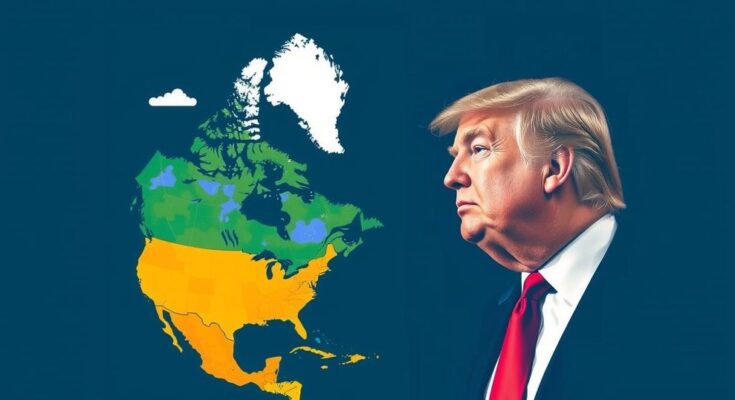The article discusses the potential impacts of Donald Trump’s presidency on global climate change efforts, particularly following his previous skepticism towards climate science and withdrawal from the Paris Agreement. It raises concerns over increased fossil fuel production and cuts to climate funding, emphasizing that these actions could weaken international commitments to combat climate change. Despite this, the article suggests that the global climate movement may endure beyond Trump’s influence.
In the context of global climate policy, the United States’ leadership plays a critical role due to its history as the largest greenhouse gas emitter. With Donald Trump recently elected as the 47th President of the United States, significant concerns arise regarding his potential impact on international climate efforts. During his first presidency, Trump demonstrated skepticism towards climate science, famously branding climate change as a “hoax,” and withdrew from the Paris Agreement, actions that could reverberate throughout his second term. Trump’s possible rejection of international climate commitments could exacerbate the challenges faced by global efforts to curb climate change. His prior withdrawal from the Paris Agreement illustrated a preference for national interests over collaborative global initiatives. The implications of his attitude could encourage other nations to reconsider their dedication to climate agreements, which would weaken collective progress on climate initiatives. Trump’s expansionary approach to fossil fuel production could significantly increase greenhouse gas emissions, hindering the transition to renewable energy sources. This could stall investments in clean technologies, undermining years of efforts in combating climate change. Trump has consistently emphasized the United States’ substantial fossil fuel reserves, declaring, “Leave the oil to me. We have more liquid gold, oil, and gas.” His administration prioritized fossil fuel production and deregulation, creating concerns for future climate ambitions. Moreover, cuts to domestic funding for climate research and international aid could emerge, further jeopardizing initiatives critical to developing countries combating climate impacts. Without the United States’ leadership, global resolve may wane, complicating international climate negotiations. However, the global climate movement is likely to persist despite a potential lack of U.S. commitment. The worldwide transition toward clean energy is expected to continue, driven by broader cooperation that transcends any single leader, including Trump.
The article addresses the implications of Donald Trump’s election on global climate policy, particularly noting his historical skepticism towards climate science and withdrawal from the Paris Agreement during his previous term as president. It highlights how Trump’s policies favor fossil fuel production over renewable energy, which creates challenges for national and international climate commitments. The piece explores the potential repercussions for domestic climate funding and the broader global climate action movement.
In summary, Trump’s leadership could significantly influence the global fight against climate change by undermining international commitments and promoting fossil fuel reliance. This could hinder progress toward renewable energy and adversely affect climate initiatives, especially in vulnerable regions. While challenges may emerge, global efforts for climate cooperation will likely continue, indicating resilience against individual leaders’ actions. The continuity of the climate movement reflects a collective determination to address climate change effectively.
Original Source: www.manilatimes.net




